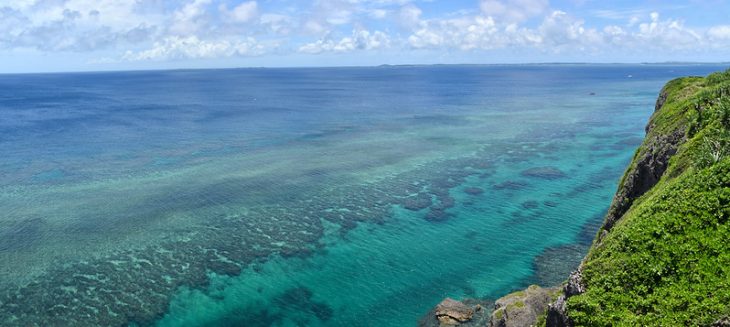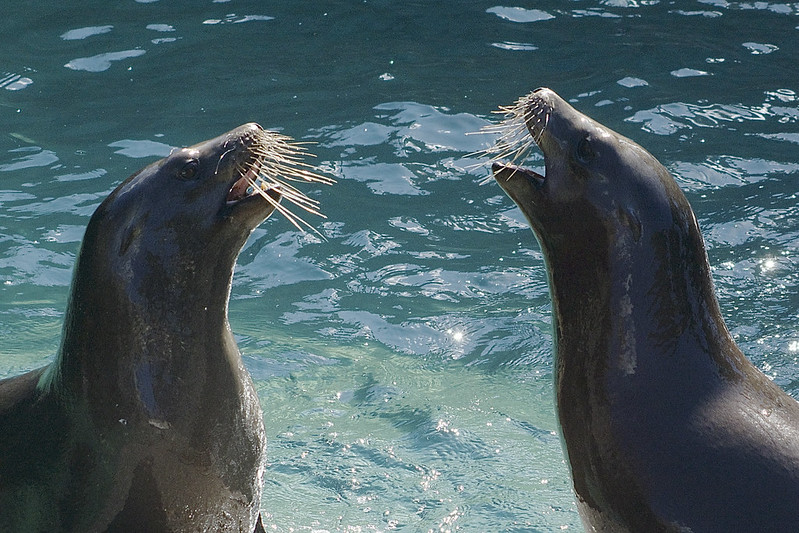
The captivating world of marine biology unveils the mysteries and wonders of the ocean. From vibrant coral reefs to majestic marine mammals, marine biology encompasses the study of aquatic organisms and their habitats.
In this comprehensive article, we will delve into fascinating facts about marine biology, shedding light on the diverse life forms that inhabit our oceans. Join us on this journey as we explore the depths and discover the incredible secrets of marine life.
What is Marine Biology?
Marine biology is a scientific discipline that focuses on the study of marine organisms, their behaviors, interactions, and the marine ecosystems they inhabit. It encompasses a wide range of sub-disciplines, including marine ecology, marine conservation, marine physiology, and marine genetics.
Biodiversity Conservation
Marine ecosystems are home to a vast array of species, many of which are yet to be discovered. By studying marine biology, scientists can better understand and conserve this biodiversity, ensuring the health and sustainability of marine ecosystems.
Climate Regulation
Oceans play a significant role in regulating the Earth’s climate by absorbing and storing large amounts of heat and carbon dioxide. Understanding the complex interactions between marine organisms and their environment is essential for predicting and mitigating the effects of climate change.
Resource Management
The oceans provide valuable resources such as food, medicines, and minerals. Marine biology research helps inform sustainable management practices, ensuring the responsible use of these resources while minimizing negative impacts on marine ecosystems.
Environmental Monitoring
Marine biologists play a crucial role in monitoring and assessing the health of marine environments. By studying indicators such as water quality, species abundance, and biodiversity, scientists can identify environmental changes and develop strategies for conservation and restoration.
Marine Mammals
Marine biology also encompasses the study of marine mammals, such as dolphins, whales, seals, and sea lions. These fascinating creatures have adapted to life in the ocean and display remarkable intelligence and social behaviors.

Coral Reefs
Coral reefs are among the most diverse and productive ecosystems on the planet. They are home to an incredible array of marine organisms, including vibrant coral polyps, tropical fish, and other invertebrates. They are found in warm, shallow waters and provide a habitat for numerous species. They are often referred to as the “rainforests of the sea” due to their exceptional biodiversity.
Giant Kelp Forests
Kelp forests are underwater ecosystems dominated by giant kelp, which can grow up to 2 feet per day. These forests provide shelter and food for a diverse range of marine species, including fish, invertebrates, and sea otters. They are among the most productive and biologically diverse habitats on Earth.
Deep-Sea Hydrothermal Vents
Deep-sea hydrothermal vents are volcanic features on the ocean floor that release hot, mineral-rich fluids. These vents support unique ecosystems where organisms, such as giant tube worms and vent crabs, thrive in the absence of sunlight by utilizing chemosynthesis.
Threats to Marine Ecosystems
Human activities, including overfishing, pollution, habitat destruction, and climate change, pose significant threats to marine ecosystems and the organisms that rely on them.
Protecting Endangered Species
Marine biologists work tirelessly to protect endangered species, such as sea turtles, whales, and dolphins. Through research, conservation initiatives, and policy advocacy, efforts are made to ensure their survival.
Sustainable Fishing Practices
Marine biology research helps identify sustainable fishing practices that maintain healthy fish populations while minimizing negative impacts on the ecosystem.
Marine Protected Areas
Establishing marine protected areas (MPAs) is a crucial step in conserving marine habitats and biodiversity. These designated zones allow ecosystems to recover and provide safe havens for marine species.
Bioluminescence
Many marine organisms have the remarkable ability to produce light through a process called bioluminescence. This adaptation serves various purposes, including communication, camouflage, and attracting prey.
Marine Migration
Many marine species undertake incredible migrations. For example, humpback whales migrate thousands of miles each year from their feeding grounds in polar regions to warm tropical waters for breeding and calving. Sea turtles also embark on long journeys to lay their eggs on specific nesting beaches.
Deep-Sea Discoveries
The deep sea, with its extreme pressures and darkness, holds numerous mysteries waiting to be unraveled. Recent explorations have revealed fascinating creatures like the giant squid, which can reach lengths of up to 43 feet, and the anglerfish, known for its bioluminescent lure.

Marine Symbiosis
Many marine organisms form intricate relationships known as symbiosis. For example, clownfish and sea anemones have a mutualistic relationship where the clownfish gains protection from predators among the anemone’s tentacles, while the clownfish provides nutrients to the anemone through its waste.
Conclusion
Marine biology takes us on a remarkable journey through the world’s oceans, revealing the beauty and complexity of marine life. From colorful coral reefs to the vast open ocean, every corner of the marine ecosystem offers valuable insights and scientific discoveries. As we deepen our understanding of marine biology, it becomes increasingly evident that the conservation of our oceans is of utmost importance.
Through research, education, and sustainable practices, we can protect and preserve the marine environment for future generations. Let us appreciate the wonders of marine biology and work together to ensure the continued health and vitality of our precious oceans.
Frequently Asked Questions (FAQs)
What education is required to become a marine biologist?
To become a marine biologist, one typically needs at least a bachelor’s degree in marine biology, marine science, or a related field. Higher-level positions and research often require a master’s or doctoral degree.
What are some career options in marine biology?
Marine biologists can pursue careers in various fields, including research, conservation, education, and policy. They may work in universities, government agencies, aquariums, research institutions, or non-profit organizations.
Are there any specific skills required to be a marine biologist?
Skills such as strong analytical abilities, critical thinking, problem-solving, and excellent communication skills are important for marine biologists. Fieldwork experience, scuba diving certification, and knowledge of data analysis and research techniques are also valuable.
What are some current challenges in marine biology?
Marine biologists face challenges such as overfishing, habitat degradation, pollution, climate change, and the loss of biodiversity. Addressing these challenges requires collaborative efforts, innovative research, and effective conservation strategies.
How can individuals contribute to marine conservation?
Individuals can contribute to marine conservation by practicing sustainable fishing and seafood consumption, reducing plastic waste, supporting marine conservation organizations, and spreading awareness about the importance of protecting our oceans.
Was this page helpful?
Our commitment to delivering trustworthy and engaging content is at the heart of what we do. Each fact on our site is contributed by real users like you, bringing a wealth of diverse insights and information. To ensure the highest standards of accuracy and reliability, our dedicated editors meticulously review each submission. This process guarantees that the facts we share are not only fascinating but also credible. Trust in our commitment to quality and authenticity as you explore and learn with us.


